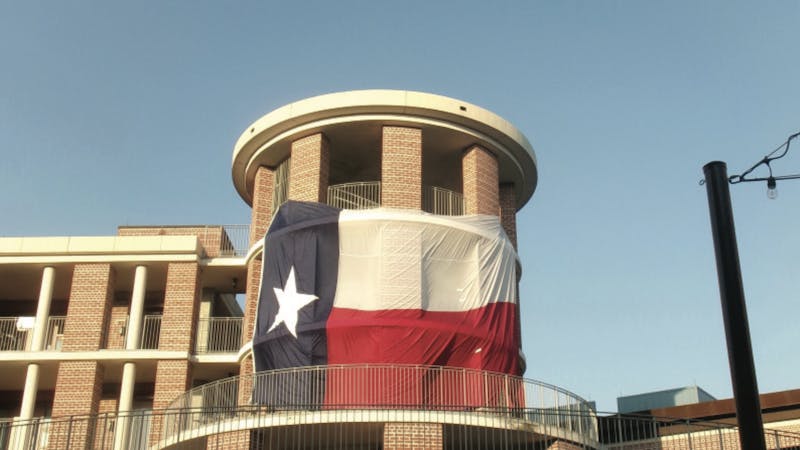M.I.A: This semester, Baker and West serveries lost all 3,200 of their plastic cups
The Student Association Environmental Committee presented at the SA Senate meeting on the issue of lost cups from the servery, according to committee co-chair Tierra Moore.
“In the last academic year, roughly 8,000 cups were purchased, lost and replaced,” Moore, who presented on Nov. 5, said. “Baker and West serveries have had all of their cups replaced this semester alone. This adds up to a significant 3,200 cups.”
According to Moore, to offset losses, Housing and Dining has proposed that disposable, recyclable 16-oz. plastic cups be added to the serveries. Moore said she thinks this proposal is environmentally undesirable.
“With [Rice’s] recycling rate at just 28 percent, this might negatively impact [our] waste stream,” Moore said.
H&D Senior Business Director David McDonald said the additional cost of disposable cups may potentially increase H&D expenditure, which is ultimately funded by students.
“It is important to note that behavior directly influences the cost of room and board each year,” McDonald said. “If we are spending more on disposables and tumblers, we will need to make up for this increased cost in some way.”
Moore said the committee thought the real issue is a growing take-out culture among students and proposed replacing fewer cups in serveries to discourage wastefulness.
“The loss of dishes in the serveries is an issue driven by student behavior,” Moore said. “For that reason, I proposed reducing the amount of cups replaced in the serveries … The reduced supply may prompt students to be more conscientious about returning cups.”
H&D, however, said they are uncertain whether purchasing fewer cups is appropriate, since it goes against the mission of the department, according to McDonald.
“We are a service organization funded by the room and board payments by students on meal plans,” McDonald said. “If students don’t have cups available, we feel that we are not meeting our goals of providing for the students.”
At the SA Senate meeting, University Court Chair Brian Baran said reducing the number of reusable cups may leave students with no alternatives but to take disposable cups. Baran said a more realistic option is to keep the current number of reusable cups and to increase the disposable ones.
“I doubt any marketing effort will convince enough students to change their behavior to outweigh the increase in reusable cup shortages,” Baran said. “If the disposable cups were a reasonable size, students taking their meal to go would be less inclined to take the reusable cups, so fewer would go missing. We have to accept and work with the reality that many students’ schedules prevent them from eating every meal in their college’s commons.”
Moore said the overall response she got at the SA Senate meeting seemed to suggest a reluctance to take her proposal; most seemed to favor H&D’s plan.
“Ideally, the SA would campaign this change as a positive, student-led initiative to improve campus sustainability,” Moore said. “However, at last week’s [SA Senate meeting,] the SA showed a tepid response to this proposal. They appear to support the addition of the disposable plastic cups, as long as there are places to recycle them.”
Moore said work has already been done with regards to adding recycling infrastructure.
“It should be noted that Rice has been working toward installing outdoor recycle bins across campus,” Moore said. “This initiative was supported by Ping [Leebron], who helped secure a $50,000 grant to add approximately 25 outdoor recycle bins. [Facilities, Engineering and Planning] is working towards installing these bins within the next year or so.”
Ultimately, the root of the problem of lost cups is still student attitude, accordintg to Moore.
“It is also important to address student behavior,” Moore said. “A general lack of education, misinformation and student apathy contribute significantly to these problems.”
Richard Johnson, director of Energy and Sustainability for Rice University, said the cup problem warrants serious attention.
“I fully support H&D’s efforts to initiate a broader conversation about this topic,” Johnson said. “In the interim, I appeal to Rice students to return tumblers, plates and flatware — which are Rice property — back to the serveries where they belong.”
More from The Rice Thresher
Rice lands high on Niche, Forbes college ranking lists
Rice recently ranked No. 10 on Niche’s Best Colleges in America list and No. 12 on Forbes’ annual America’s Top Colleges list in 2026. It was also recognized in several categories by the Princeton Review, placing in the top 10 in four categories.
From post-human novels to augmented reality, Rice hires new faculty
Rice welcomed 97 new professors this fall across disciplines, including a posthumanist Harvard scholar, a husband-wife duo and a computer science professor who graduated from Rice thrice.

First public of the year reckons with threats of a dry campus
After a Dis-O that saw four times as many calls for intoxication-related transports of students to the hospital compared to the prior three years, Cory Voskanian, a Martel College socials head tasked with planning the first public of the year, said that he was feeling the pressure.


Please note All comments are eligible for publication by The Rice Thresher.